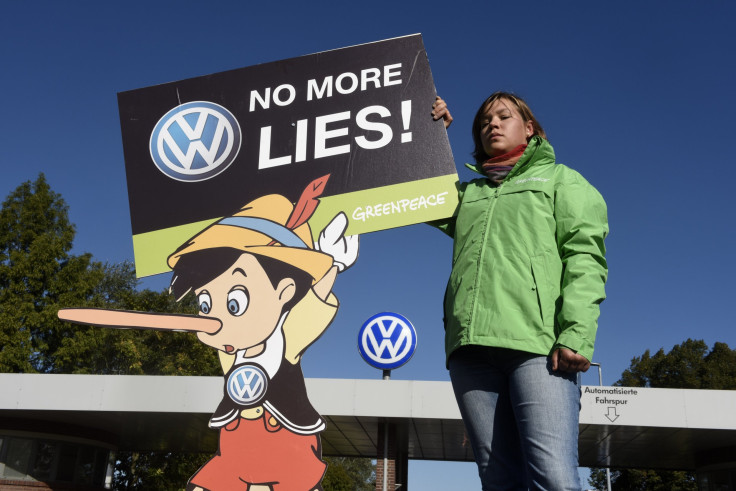Anti-Diesel Sentiment Rising In Europe In Wake Of VW Emissions Scandal

Officials in Germany and France are questioning whether the European Union should be encouraging the use of diesel fuel in the wake of Volkswagen’s massive diesel-emissions cheating scandal. Meanwhile, the German automaker announced Thursday it will recall 8.5 million diesel cars in Europe, including the 2.4 million vehicles that German regulators demanded the company fix.
Germany's Environment Minister Barbara Hendricks said in an interview Thursday on ZDF television that her government should end the tax breaks extended to diesel car buyers and focus exclusively on promoting electric-car use.
Germany wants to have 1 million electric cars on its roads by the end of the decade, up from about 30,000 today, a goal that seems more imperative now that Volkswagen has exposed challenges to making diesel engines compliant with increasingly stringent U.S. and European Union emissions standards.
“If we want to come closer to that goal, we really have to do something," said Hendricks. That something, she says, is to stop offering Germans tax breaks for diesel-car purchases. “Diesel will only have a future if the industry proves that they can get it really clean,” Hendricks wrote in a position paper released Wednesday.
On Oct. 7, France announced it would increase taxes on diesel fuel in the coming years and ease prices on regular gasoline as part of its effort to reduce diesel consumption. Like elsewhere in Europe, fuel taxes in France have made diesel cheaper than regular gas. This policy “has triggered legitimate concerns among many French people about the impact on air quality," said a statement from the French environment ministry published by Agence France-Presse. (For now, Germany has ruled out a similar move.)
Hendricks also called for EU countries to implement emissions testing that better reflects real-world driving conditions.
Current testing is done in labs under controlled lab-like conditions that can skew results, especially for determining vehicle fuel economy. Volkswagen admitted last month it had installed a defeat device in its small diesel engine configuration software aimed at deceiving these lab tests. The ruse was discovered by a group of U.S. researchers who compared those lab results to measurements conducted during road trips.
About half of all cars on European roads have diesel engines. Consumers like them because they offer better fuel economy in a region with some of the world’s highest pump prices. Diesel is cheaper than regular gas in Europe, too.
And Volkswagen Group, which claims more than a fourth of Europe’s new-car market, has played a major role in diesel-engine demand because of its turbocharged direct injection (TDI) “clean diesel” technology, offering hybrid-like fuel economy with the improved performance and power of diesel.
About 11 million Volkswagen diesel cars worldwide, including 482,000 in the U.S. and the 8.5 million in Europe, have defeat device software installed. Volkswagen Group brands Audi, Skoda, VW and some commercial vehicles have been affected by the problem.
© Copyright IBTimes 2024. All rights reserved.




















